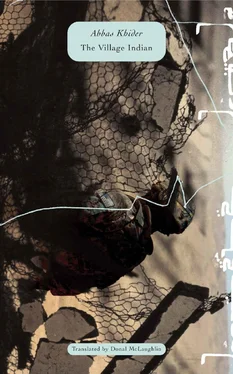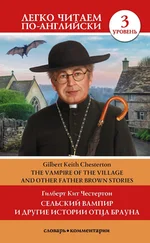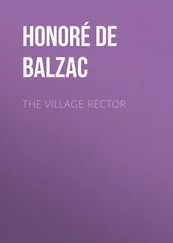Fate had possibly played the same game with me. At the age of nineteen, I was put in prison for a similar reason. Where there was any number of walls to write on. Nothing but walls. A window was an alien concept. As were the sun and women. You could only guess that the sun shone somewhere out there. On the dark side of the Earth, the first line of verse I read was on the wall of my first cell: ‘Prison is, for me, an honour; the shackle, an ankle bracelet; and the gallows, the heroes’ swing.’ Its author must have lost all hope. I grew frightened. Back then, I had no intention of ending up as a hero at the gallows. A year later, I wrote the same line in another cell and thought nothing of it. Simply anything and everything was written on the walls. You could spend a lot of time exploring the worldview of the various prisoners, their ethnic or religious affiliations. ‘Workers of the world, unite!’—a communist. ‘Free Kurdistan!’—a Kurd. ‘May God protect the believers’—some religious person. ‘Come, Holy Imam al-Mahdi, and save the earth!’—a Shi’ite. ‘I want to go back to my mother.’—someone like me, with no idea why he was there.
Not all holy men were present on these walls, though. Joseph — sent from God — was the wall star of this prison. ‘God, free me as you freed Joseph from prison!’ This Joseph was everywhere, as if he’d been the only one God ever sent to earth. The Shi’ites have an imam known as al-Kadhim. He was poisoned in prison.His name could be found everywhere too. You could hardly overlook the fact that the person who’d written al-Kadhim’s name had had enough, with life or what was left of it. And so I spent my time analysing the sentences on the walls.
Later, I discovered a new game. I studied the inscriptions to try and find out how long their authors had spent in prison. Many wrote their date of arrival on the wall as soon as they arrived. Very few also had a second date. Of their release, perhaps? In most cases, though, there was only the one. I memorized certain styles of lettering and looked for similar ones in other cells. For, in the course of my time in prison, I went from one cell to another. And so, in time, I discovered that the inscriptions without a second date were generally by the Shi’ites and Kurds. This set loose a boundless fear in me for I, too, was a member of a Shi’ite family. In the end, I had the good fortune to be allowed to see the light of the sun again — after eighteen months and four days.
Since my rebirth I’ve barely written on the walls. Instead, I read more than ever what others have left behind. I don’t know why. After my release, it hardly made sense to besmirch the walls. In my eyes, things had changed. I thought only of fleeing now. And so I battled my way to Jordan. And from the harbour town of al-Aqaba, I made it by sea to Egypt. On the dirty, old ship were hundreds of Egyptian workers, taking home new TVs, video recorders and clothes. A few Iraqis, too, wanting to get as far away as possible from their homeland. The ship’s sides were covered with inscriptions. I spent the hours not looking out to sea but reading all the scrawls. The most beautiful, and the most heartbreaking, was: ‘Welcome to Africa. He who enters is lost. He who gets out, reborn.’
The inscriptions were constantly changing. Once, I found my name everywhere. It was in a village on the border between Chad and Libya. The village of the Garar tribe. For a brief while, I found work there. The Muslims from Chad were desperately looking for someone to teach their children the Koran. True, there were a few in the tribe who knew Arabic but the village elders felt that a real Arab would make a better teacher. The village didn’t have a school. Only a tent. The children sat on the ground. A board, held up by dowels and stones. A chair for the teacher. That bothered me less, actually. What bothered me more was that, from the very first day, everyone laughed at my name. The children, too, grinned cheekily and followed me with shouts of ‘Mister Rasul’. After my first walk through the village, I understood part of the puzzle. My name was everywhere, on every wall — in the valley, on the hill, on every stone. The men with me explained, mysteriously, that the name had been written all over the village for a long time and hadn’t anything to do with me. To me, it seemed strange. The head teacher reassured me with a smile, ‘The people in this village believe that, some time in the future, a hero will come. He will be called Rasul and he will change the world.’
‘Are you serious?’
‘It’s true. But it has nothing to do with you — the hero is from Chad, not Arabia.’
I didn’t believe a word. The inscriptions seemed to point, at least, to a glimmer of hope. Nonetheless, ‘Rasul’ was to appear more and more on the stones in the valley. I thought nothing of it. Hero, after all, isn’t necessarily the worst thing I have been called. When, after three months, I was to return to Tripoli, I took my leave of these people who had been so good to me. The head teacher accompanied me to the car and said, with a smile, ‘Now I can tell you why your name is everywhere. It has nothing to do with heroes, nor with you.’
‘Then—?’
‘Some time ago, we had an Arabic teacher from Libya. His name was Rasul too. The boys in the tribe liked him a lot, spent all their free time with him. When he left, some of them — still longing for him — wrote his name everywhere.’
‘Was he that good?’
‘Yes. . and. . umm. . he was gay.’
The inscriptions on the walls were so different in the East and the West that, sometimes, I couldn’t work out whether they were meant positively or negatively. My next stop was Turkey. I had to cross the Greek border illegally, on foot. It was my third attempt, already, that ended on the bank of the Ebrus. Many had lost their lives in it — the ‘river of doom’, the refugees called it — trying to swim across to Greece. I remember a young Persian who was dragged under by a powerful wave. He never came up for air again. The river can rightly be called an ‘international watery grave’. Countless people of many countless countries have lost their bodies and souls to it. To them, I dedicated the following inscription on a tree on the Turkish side: ‘This is the River Ebrus, an international watery grave and meeting place of many cultures.’
Each time, I sat on its bank and dreamt of reaching the other side. It was really and truly a curse, this border river. Three times, I was arrested by the Turkish police. The third time, I was sitting beside a tree as our people-smuggler fixed his rubber dinghy. Carved into the tree in Arabic was ‘Here is where the sun goes down in the east and rises in the west.’ I didn’t have the time, sadly, to consider what the author meant by that for a loud voice—‘ Durmak, polis !’—Freeze, police! — tore me from my thoughts.
At the fourth attempt, I succeeded in crossing the river of doom. Nonetheless, I had to return to it. On the Greek side of the river, the police surprised our gang of refugees. They took us to a prison in Komotini. In the dirty, old, damp, smelly prison were jailed a vast number of refugees. Someone had written on the wall, in English: ‘Welcome to Istanbul.’ I asked a Kurd beside me, ‘We’re in Greece, aren’t we?’
‘Yes, we are.’
‘So what does this mean?’
‘Nothing. I think the police wrote it to let us know that we’ll all be deported to Turkey. They’re making fun of us.’
‘Are we really being deported?’
‘Yes.’
‘Why?’
‘Because they send back all those they arrest before they reach Thessaloniki. If you get beyond Thessaloniki, they send you to Athens.’
‘Is that the law?’
‘It’s a fact!’
Читать дальше












